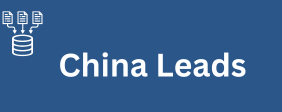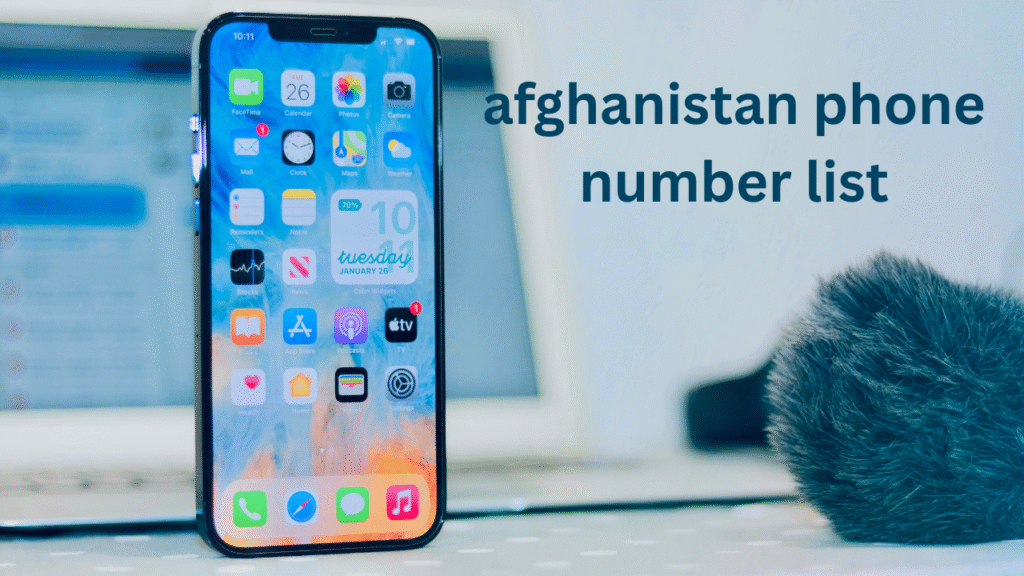Afghanistan phone number list serves as a vital resource for businesses, researchers, and organizations aiming to establish effective communication with the Afghan population. The country, characterized by its diverse cultural fabric and dynamic socio-political environment, has witnessed significant growth in mobile phone usage over the past decade. A properly curated phone number list allows enterprises to tap into this expanding communication network to reach out to potential clients, partners, or survey respondents. Mobile connectivity has grown rapidly, particularly in urban centers like Kabul, Herat, and Mazar-i-Sharif, creating new channels for telecommunication-driven strategies. This evolution in mobile access not only reflects the increasing digital penetration but also highlights the importance of having an accurate and updated phone number list that supports efficient outreach and engagement.
Why an Accurate Afghanistan Phone Number List Matters
Afghanistan phone number list must be reliable and continuously updated to be truly effective in any application, whether it’s for marketing, customer support, or informational campaigns. Accuracy ensures that messages and calls reach the intended audience, reducing the chances of failed communication or wasted resources. For instance, companies launching mobile marketing campaigns rely heavily on these lists to send SMS promotions or customer service updates. Outdated or incorrect numbers can lead to reduced campaign efficiency and lost business opportunities. Furthermore, in sectors like humanitarian aid or education, where timely communication is critical, a well-maintained list can be the difference between success and failure in mission-driven tasks. Therefore, sourcing phone numbers from verified databases and updating them periodically is a best practice in today’s data-driven operations.
Sources and Compilation of Afghanistan Phone Number List
Afghanistan phone number list can be compiled through various legitimate sources, depending on the intended use. Telecommunications companies, with appropriate permissions, can provide access to anonymized user databases. Additionally, government agencies and NGOs may share public contact data for specific awareness programs or surveys. Businesses often build their own lists through customer sign-ups, online registrations, app downloads, and service requests. Another method involves purchasing third-party verified lists from reputable data providers specializing in regional telecom data. However, ethical practices and legal compliance must be strictly followed to ensure that the collection and use of such data respect the privacy and rights of Afghan citizens. Whether generated organically or sourced externally, the ultimate goal remains to maintain an up-to-date, secure, and relevant database.
Benefits of Using an Afghanistan Phone Number List for Business Growth
Afghanistan phone number list provides a competitive edge for businesses aiming to expand their presence in the Afghan market. With the right list, companies can run direct marketing campaigns via SMS, voice calls, and even messaging apps like WhatsApp, which are increasingly popular in the region. Personalized communication builds trust and enhances customer experience, leading to increased afghanistan phone number list conversions and stronger brand loyalty. Service providers can also use such lists to conduct satisfaction surveys or notify customers about product upgrades, new offerings, or service outages. Financial institutions, including microfinance and mobile banking services, leverage these lists to extend services to rural and underserved populations. In this way, a comprehensive phone number database becomes a foundation for strategic outreach and long-term business development.
Challenges Associated with Afghanistan Phone Number List Management
Afghanistan phone number list maintenance comes with its share of challenges, particularly in a country with evolving telecom infrastructure and socio-political uncertainties. One major challenge is ensuring data validity, as frequent SIM card changes and number deactivations are common in Afghanistan. This requires periodic validation and cleansing of data to maintain usability. Another challenge lies in data fax number list template security and privacy, especially given the country’s heightened sensitivity to personal information due to ongoing conflicts and surveillance concerns. Misuse of data can not only breach trust but also violate ethical standards and local regulations. Additionally, language barriers and regional dialects pose difficulties in customizing messages effectively, necessitating localized knowledge and cultural sensitivity when designing outreach campaigns based on phone number lists.
Legal and Ethical Considerations for Afghanistan Phone Number Lists
Afghanistan phone number list usage must comply with both local laws and international data protection standards to ensure ethical application. Though Afghanistan does not currently have a comprehensive data protection law akin to the GDPR, users of such lists must still exercise sale leads caution to avoid infringing on individuals’ rights. Consent-based data collection is highly encouraged, particularly for commercial or political messaging. Transparency in data handling processes builds credibility and minimizes the risk of public backlash. Organizations should also secure their databases using encryption and access control to prevent unauthorized access. For international entities operating in Afghanistan, adhering to global privacy frameworks can protect their brand reputation and support their commitment to responsible data usage.
Telecom Landscape and Its Influence on the Afghanistan Phone Number List
Afghanistan phone number list utility is shaped significantly by the country’s telecom infrastructure, which has seen considerable development despite adversity. Afghanistan’s mobile network coverage has expanded to over 85% of the population, driven by operators like Roshan, MTN, AWCC, and Etisalat. These providers offer services ranging from basic calls and texts to 4G internet, allowing for both traditional and internet-based marketing approaches. As more people access mobile devices, including smartphones, there’s an increasing shift towards app-based communications, opening up opportunities to engage users through multi-channel strategies. Understanding the telecom ecosystem—coverage areas, popular providers, data usage trends—helps organizations better structure their phone number lists for segmentation and targeted outreach, thereby optimizing performance and resource allocation.
Utilization of Afghanistan Phone Number List in Humanitarian Operations
Afghanistan phone number list plays a critical role beyond commercial applications, especially in humanitarian, educational, and health-focused operations. NGOs and aid agencies use these lists to disseminate critical information about health campaigns, food distributions, and emergency services. During crises such as natural disasters or public health emergencies, SMS alerts can deliver life-saving instructions to affected populations. Educational institutions, especially in rural areas, use mobile outreach to share exam schedules, enrollment details, and class updates with students and parents. Moreover, health campaigns focusing on immunization or maternal care rely heavily on mobile lists to ensure that information reaches even the most remote areas. Thus, phone number databases become a vital tool in supporting community-level interventions and fostering inclusive development.
Building Trust through Responsible Afghanistan Phone Number List Use
Afghanistan phone number list, when used responsibly, becomes more than just a tool—it fosters trust and engagement between organizations and the communities they serve. Transparency, cultural respect, and relevance of content are key to building positive relationships with recipients. By sending timely, valuable, and personalized messages, businesses and institutions show that they respect the individual behind the number. Additionally, offering opt-out options and honoring user preferences further enhances credibility. Trust is particularly important in Afghanistan, where historical conflicts and political instability have created a cautious communication climate.

